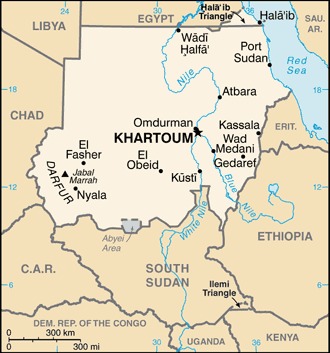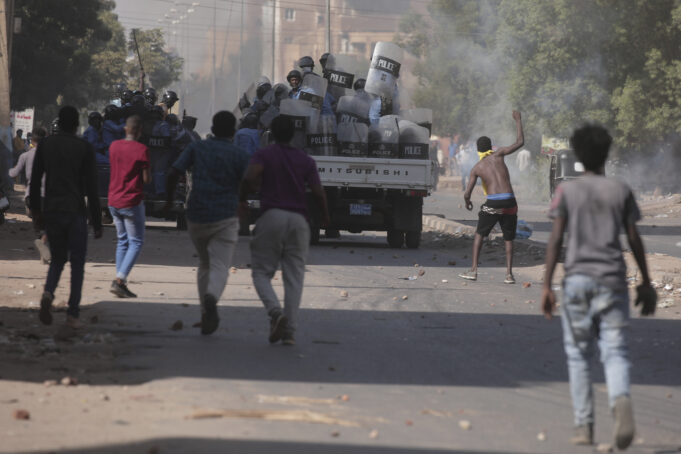KHARTOUM, Sudan—A pro-military minister in Sudan says time is running out for the country’s deposed prime minister to agree to take a post in a military-led government after top generals seized power last month.
Security forces, meanwhile, opened fire on anti-coup protesters in the capital, Khartoum, and its twin city of Omdurman, killing at least 14 people, according to doctors. The Nov. 17 tally was the highest daily count of people killed since the Oct. 25 coup.
The crackdown on protesters has come as U.S. Secretary of State Antony Blinken is in Africa to boost thus-far unsuccessful U.S. diplomatic efforts to resolve the deepening conflicts in Ethiopia and in Sudan.
Prime Minister Abdalla Hamdok is currently under house arrest in the capital of Khartoum. He and more than 100 other government officials were detained during the coup. Many have been kept in undisclosed locations.
“The country cannot wait forever, so if he doesn’t take the job, then someone else will definitely take it,” Gibreil Ibrahim, the finance minister of the deposed government, told The Associated Press late Nov. 16.
Speaking from his office in Khartoum, Ibrahim said calls by some pro-democracy groups, the United States and its Western allies to return the pre-coup transitional government are “unrealistic.” Negotiations have focused on convincing Hamdok to lead a technocratic Cabinet that runs day-to-day affairs, he said.
Ibrahim, 66, is a rebel leader who joined the government earlier this year after the transitional administration reached a peace deal with a rebel alliance, ending years of civil war. He was one of those leading protests against Hamdok and others in Khartoum before the top generals initiated their coup.

He spoke to the AP ahead of rallies in Khartoum and other cities across the country against the military’s takeover. Authorities have shut bridges linking Khartoum and its twin city of Omdurman and tightened security across the capital. Security forces fired live ammunition and tear gas at anti-coup protesters in at least one location in Khartoum, according to activists.
The Sudan Doctors Committee said most of the killings took place in Khartoum’s district of Bahri. It said dozens of others were wounded, as security forces used what the committee called, “brutal repression” against protest rallies.
A spokesman for Sudanese police did not respond to calls seeking comment.
Magdy Mohamed Osman, a researcher with Human Rights Watch in Sudan, said the developments show the military has taken “their power grab” to a new level. He added that security forces have employed “extreme levels of brutality” against the protesters—including attacking health care facilities.
Fatalities Nov. 17 brought the death toll since the Oct. 25 coup to at least 38 people killed and hundreds wounded in protests since Oct. 25, according to the doctors committee.
The Sudanese military seized power Oct. 25, dissolving the transitional government and arresting dozens of officials and politicians. The takeover upended a fragile planned transition to democratic rule, more than two years after a popular uprising forced the removal of longtime autocrat Omar al-Bashir and his Islamist government.
The coup has drawn international criticism and massive protests in the streets of Khartoum and elsewhere in the country.
The top U.S. diplomat for Africa, Molly Phee, met Nov. 17 with Hamdok, Burhan and others, part of ongoing mediation efforts to reach a compromise between civilians and the generals. (AP)













